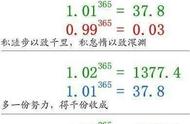3、疑问词加不定式
(1)、“疑问词加不定式”在句中起名词作用,可作主语、宾语、表语等,不能作状语。它通常可以相当于一个从句。如:I don’t know what to do = I don’t know what I should do. 疑问词必须位于不定式前,疑问代词what, which, whom作不定式的宾语,疑问副词where, when, how作不定式的状语,不定式必须用主动形式。
(2)、在这个结构中,不定式中的动词必须是及物的,不及物动词应该加上相应的介词。有些动词之后适合接这个结构作宾语,否则句意不完整。
(3)、这类动词常用的有16个,可借助下面的口诀来记忆:知道记住忘理解;想知解释查明白;决定告诉想考虑;讨论表明问和学 (know, remember, forget, understand, wonder, explain, find out, see, decide, tell, think of/ about, consider, discuss, show, learn, ask)。
练习:
①Last summer I took a course on ___.
A. how to make dresses B. how dresses be made
C. how to be made dresses D. how dresses to be made
②The mother didn’t know ___ to blame for the broken glass as it happened while she was out.
A. who B. when C. how D. what
③It is said in Australia there is more land than the government knows ___.
A. it what to do with B. what to do it with
C. what to do with it D. to do what with it
④I never thought there would be so many cameras ___, so I couldn’t decide ___.
A. to choose from; which to buy B. for choosing; what to buy
C. to choose from; to buy which D. to be chosen; which to bought
⑤___ is very important.
A. Solve the problem B. How to solve the problem
C. How to be solved the problem
D. What to deal with the problem
⑥It’s high time we considered ___ to prevent more air pollution.
A. doing what B. what to do C. how to do D. what should we do
⑦He gave me some advice on how ___ English.
A. studying B. study C. to study D. should I study

4、双重问句
(1)、复杂的特殊疑问句,又叫双重疑问句,它融一般疑问句与特殊疑问句于一体。
(2)、本句型分为两部分:第一部分为一般疑问句;第二部分为特殊疑问句,但其疑问代(副)词要放在句首。如: We haven’t heard from Jane for a long time. What do you suppose has happened to her?
(3)、注意事项:
1)、特殊疑问句虽被分割,但仍是一个整体。中间的do you suppose似乎像是插入语。
2)、第二部分并不是严格意义上的特殊疑问句,因为有了do you suppose,它不再使用疑问句语序,而要用陈述句语序。如:Why do you suppose the accident has happened?
3)、句子的重心在第二部分,虽有do you suppose存在,不能用yes,no回答。与特殊疑问句相同,要根据疑问词做具体的、针对性回答。如可回答:The accident happened because of the driver’s carelessness / because the driver was careless. 也可用I/ We think (believe, expect, suppose, imagine, guess) so. 进行肯定简略回答或用I don’t think (believe, suppose, imagine)./ I believe (suppose, imagine, hope, guess) not. 进行否定简略回答。
练习:
①___ be sent to work there?
A. Who do you suggest B. Who do you suggest that should
C. Do you suggest who should D. Do you suggest whom should
②___ you have seen both fighters, ___ will win?
A. Since; do you think who B. As; who you think
C. When; whoever D. Since; who do you think
③Where do you think ___ gone?
A. has he B. he has C. does he have D. he have
④Who do you suppose ___ to him?
A. phoning B. had phoned C. phoned D. is phone
⑤Where do you believe ___? We can’t find him anywhere.
A. has he gone B. he has gone
C. has he been D. he has been to
⑥___ Tom ___?
A. Who do you think; will get married to
B. Do you think whom; will get married with
C. Do you think when; marry to
D. Do you think of whom; be married to
⑦I haven’t heard from Henry for a long time. What do you suppose ___ to him?
A. was happening B. to happen
C. has happened D. had happened

5、状语从句的省略
(1)、当某些表示让步、时间、条件的状语从句中的主语与主句中的主语相同,且谓语动词又包含be动词,那么这种状语从句中的主谓都可省略。由单词 though, when, while, if, till, until等引导的状语从句可省略。如:The article is very important though (it is) short.
When (he was) still a boy of ten, he started working to support himself.
Do not leave the machine till (you are) told to do so.
If (he is) too old to work much, the retired worker is very enthusiastic about neighborhood affairs.
(2)、若从句的主语是it,谓语是系动词 be,可省去 it be。如:If (it is) necessary, write to me.
练习:
①When ___ in the street, he came across one of his friends.
A. was walking B. walked C. walking D. to be walking
②The men will have to wait all day ___ the doctor works faster.
A. if B. unless C. whether D. that
③Information has been put forward ___ more middle school graduates will be admitted into universities.
A. while B. that C. when D. as
④She said she would do ___ help you.
A. all what could to B. what she could C. as much as she could to
D. as possible as she could to
⑤We have come to the conclusion ___ this summer will be much better than before.
A. for B. but C. that D. when
⑥Unless ___ to speak, you should remain silent at the conference.
A. invited B. inviting C. being invited D. having invited
⑦Once ___, it will never be forgotten.
A. visited B. visiting C. visits D. visit
⑧Once ___, the book will be very popular.
A. published B. being published C. publishing D. publish
⑨The new machine, if ___ properly, will serve us for at least 10 years.
A. use B. used C. using D. to use
⑩They got married after ___ in love with each other for 3 years.
A. having fallen B. having been C. fell D. were
针对英语学习中最难的语法点----从句。着重讲解定语从句、宾语从句、主语从句、表语从句、状语从句,通过句子结构分析,让学生快速读懂句子,了解句意:领取【参考答案】的方式:责编 | 杨宁
审稿 | 李栋
校稿 | 吕放
点击右上角关注我们,主页私信回复:高中英语,即可获得试题完整版PDF文档(含答案)
请记得关注、点赞、转发、收藏。马上点击左下方【了解更多】,免费获取英语从句试听课!















